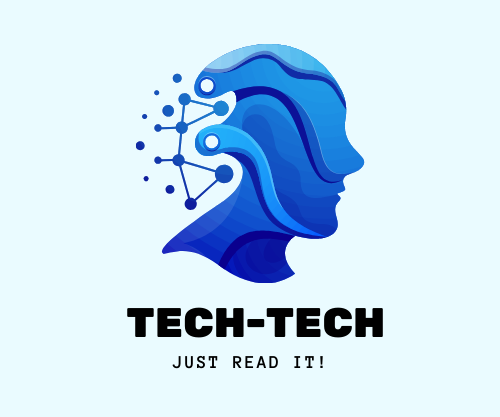Chapter 1: Origins
Silk Road
Ali, a young man with a sharp mind and a deep curiosity about the world, had always felt constrained by the limitations of society. Growing up in a bustling city in the Middle East, he excelled academically but often found himself questioning the norms and conventions that governed his life. It wasn’t until he crossed paths with Layla, a mysterious and enigmatic figure, that Ali’s worldview began to shift.
Layla was unlike anyone Ali had ever met. With her piercing gaze and cryptic demeanor, she seemed to hold the keys to a world beyond the mundane. It was she who introduced Ali to the principles of libertarianism, a philosophy that emphasized individual freedom and autonomy above all else. Intrigued by Layla’s teachings, Ali delved deeper into the world of libertarian thought, immersing himself in the works of philosophers like Ibn Khaldun and Al-Ghazali.
As Ali explored these ideas, he became increasingly disillusioned with the status quo. He saw a society rife with inequality and injustice, a system that favored the few at the expense of the many. Determined to challenge the established order, Ali began to envision a new kind of world — one where individuals could transact freely and without fear of reprisal.
Chapter 2: The Birth of Silk Road
Inspired by his newfound beliefs, Ali set out to create a platform that would embody the principles of libertarianism. Drawing on his background in computer science and cryptography, he began to develop Silk Road — a digital marketplace where people could buy and sell goods anonymously using the cryptocurrency Bitcoin.
Silk Road was unlike anything the world had ever seen. Operating on the dark web, it offered a wide range of products and services, from legal items like books and clothing to illicit substances like drugs and weapons. Despite its controversial nature, Silk Road quickly gained a reputation as a bastion of free trade and individual autonomy.
As Silk Road grew in popularity, Ali — who operated under the pseudonym “Amir Al-Bahr,” meaning “Prince of the Sea” — found himself thrust into the spotlight. He became a symbol of resistance against government overreach, a champion of the people’s right to transact freely and without interference.
Chapter 3: The Rise of Silk Road
With its innovative use of Bitcoin and its commitment to user privacy, Silk Road quickly became the go-to marketplace for those seeking to engage in illicit transactions. Sellers from around the world flocked to the platform, attracted by its low fees and decentralized structure. For many, Silk Road represented a way to bypass the traditional financial system and conduct business on their own terms.
But Silk Road was more than just a marketplace — it was a community. Users formed bonds and friendships, exchanging tips and advice on everything from security practices to product quality. For some, Silk Road became a lifeline — a means of survival in a world that seemed increasingly hostile and unforgiving.
As Silk Road continued to grow, so too did its influence. Media outlets began to take notice, shining a spotlight on the platform and its enigmatic founder. Governments, alarmed by the rise of this new digital economy, launched investigations and crackdowns in an attempt to shut Silk Road down. But Ali remained undeterred, steadfast in his belief that Silk Road was a force for good in the world.
Chapter 4: The Fall of Silk Road
Despite Ali’s best efforts to evade detection, law enforcement eventually caught wind of Silk Road’s operations. In October 2013, Ali was arrested by the FBI and charged with a litany of crimes, including conspiracy to commit money laundering, computer hacking, and drug trafficking. The arrest sent shockwaves throughout the Silk Road community, leaving many wondering what would become of their beloved marketplace.
In the aftermath of Ali’s arrest, Silk Road was shut down by law enforcement, its servers seized and its assets frozen. The closure of Silk Road dealt a devastating blow to the dark web economy, sending ripple effects throughout the cryptocurrency community. But while Silk Road may have been gone, its legacy lived on, inspiring a new generation of activists and entrepreneurs to challenge the status quo and fight for a more free and open society.
Chapter 5: Legacy
In the years since its closure, Silk Road has become a symbol of both hope and caution. For some, it remains a testament to the power of technology to empower individuals and challenge authority. For others, it serves as a warning of the dangers of unchecked ambition and moral ambiguity.
But regardless of one’s opinion of Silk Road, its impact on the world cannot be denied. It sparked a global conversation about the nature of freedom and privacy in the digital age, prompting governments and citizens alike to grapple with the implications of a world without borders or boundaries.
And as for Ali, his legacy is similarly complex. To some, he is a hero — a visionary who dared to dream of a world without oppression. To others, he is a villain — a criminal who exploited the vulnerabilities of the digital world for personal gain.
In the end, the story of Silk Road is not just about one man or one website — it is about the enduring struggle for freedom and autonomy in a world that often seems determined to crush those who dare to defy it. And as long as that struggle continues, the spirit of Silk Road will live on, inspiring future generations to fight for a better, more just world.
